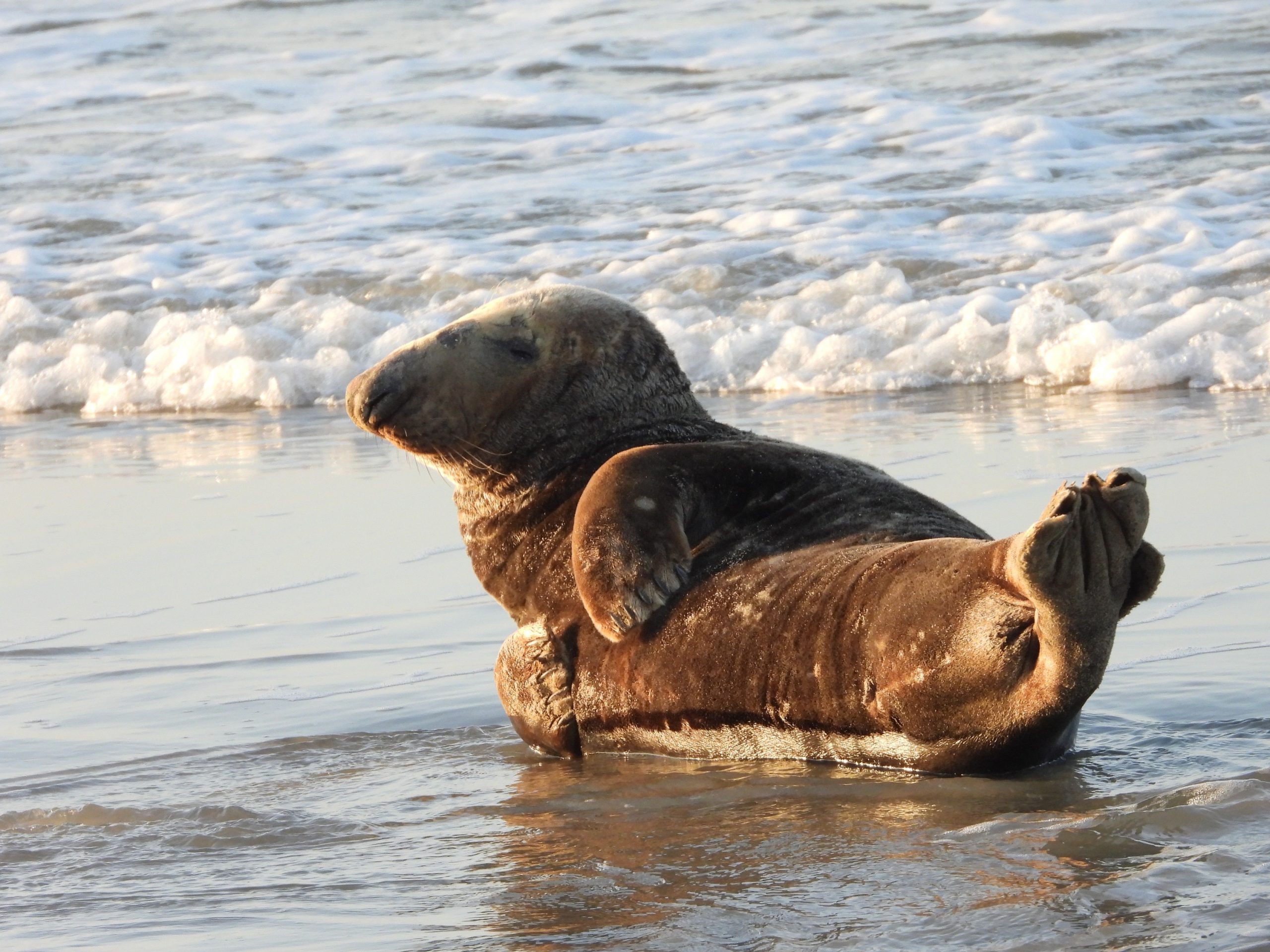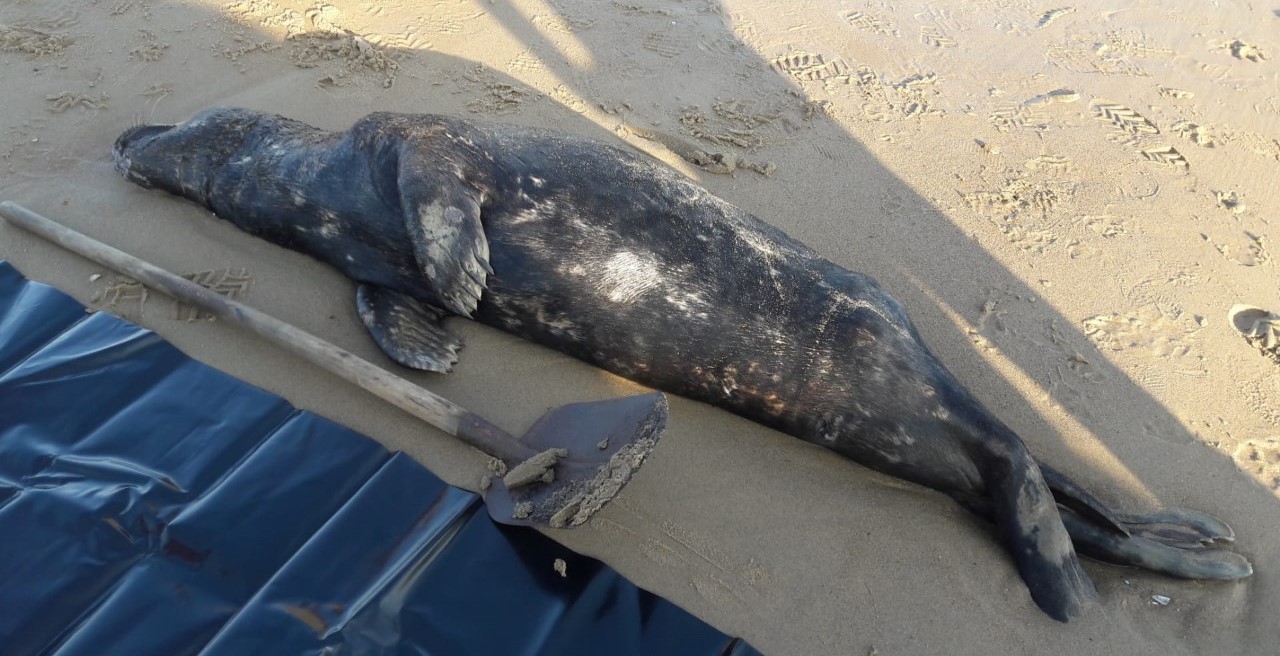In the morning of 12 August 2021, a grey seal, known to beach visitors as “Oscar”, was found dead on the beach of Wenduine. The post-mortem examination, carried out by staff from the University of Liège, in collaboration with Ghent University and the Royal Belgian Institute of Natural Sciences, confirmed what was already suspected: Oscar succumbed to the effects of his advanced age. This could be deduced from the empty digestive system, the badly worn teeth and the severe signs of emaciation, which eventually led to general organ failure.
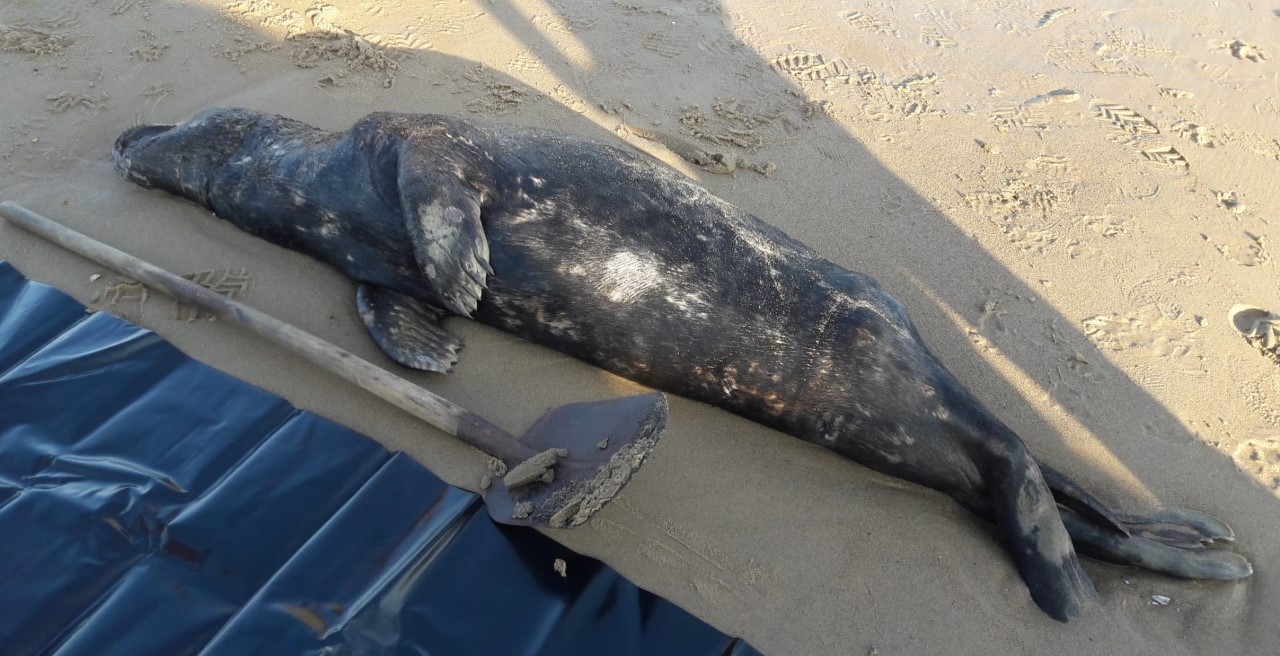
For those who followed the national media on 12 and 13 August, there was no escape: from now on, the iconic seal Oscar will no longer be seen on our beaches. Oscar, an adult male grey seal, was found dead on the beach of Wenduine (municipality of De Haan) in the morning of 12 August 2021. Since 2019 he had been regularly found on the Belgian and northern French beaches, where he has become a familiar sight to many beach visitors and nature lovers. Recently, he even enjoyed national public attention and became known as a mascot of the Belgian coast. However, from the beginning of his Belgian adventure, it was clear that Oscar was an old animal. He looked rather thin and often lay passively for long periods on the beach, which gave the impression to many that he had health problems. However, his appearance and behaviour were well-suited to an old animal, and there was no need for human intervention. So it was expected for some time that his end was not far off.
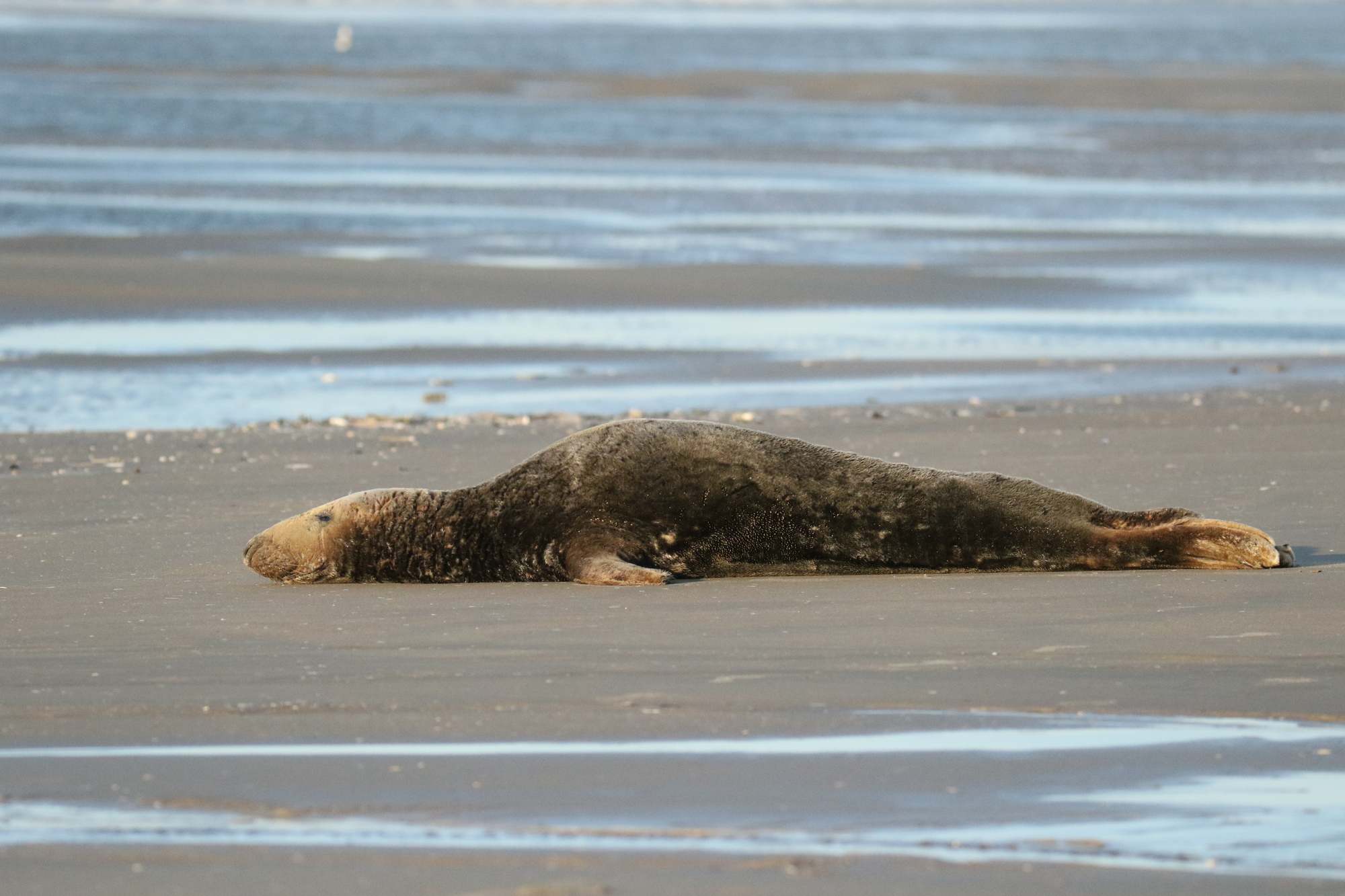
Post-mortem
Oscar’s carcass was collected immediately after the discovery by staff of the Royal Belgian Institute of Natural Sciences (RBINS), which since the early 1990s has been coordinating research on the health status and causes of death of wild marine mammals in Belgium. A post-mortem examination was immediately organised by the Faculty of Veterinary Medicine (Department of Morphology and Pathology) of the University of Liège, in collaboration with the Faculty of Veterinary Medicine of the Ghent University and the RBINS.
The investigation confirmed what was already suspected: Oscar died a natural death from the effects of old age; his body was exhausted. The autopsy revealed the following aspects:
- the digestive system was completely empty, so the animal had not been able to get any food for some time
- the teeth did not help any more either: many teeth were missing and the remaining teeth were very worn down
- severe emaciation (skin and bones): no fat tissue was found and most of the muscle tissue had also disappeared (atrophied)
- its weight was barely 100.1 kg, whereas for a male grey seal measuring 2 m in length, a ‘healthy’ weight of 170 to 200 kg would be expected (note that Oscar, at 2 m, was a rather small adult grey seal; some males grow up to 2.5 m in length)
- the weakening caused by emaciation eventually led to general organ and heart failure
- some tumours have yet to be diagnosed, but are not expected to be directly responsible for the death
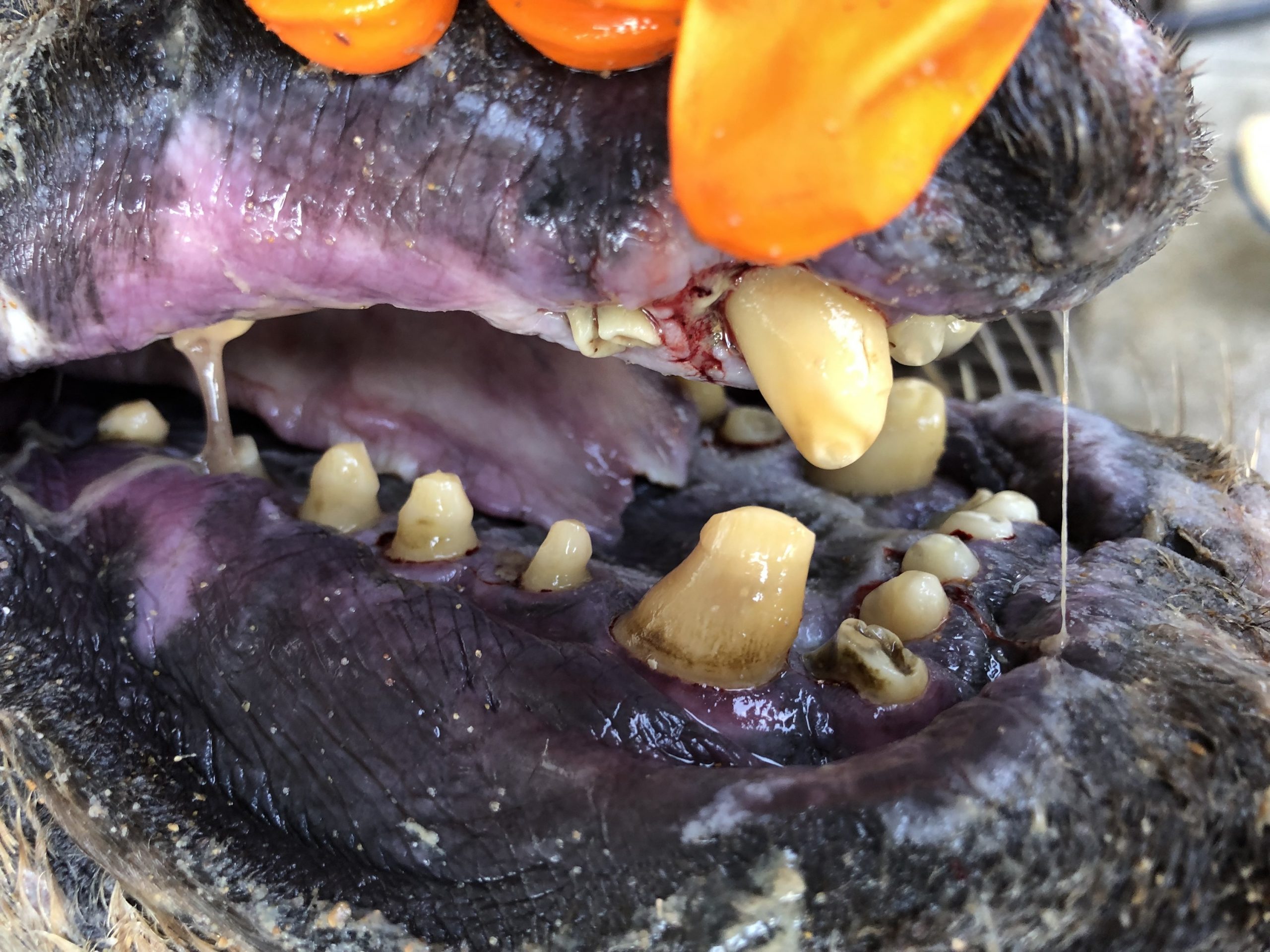
Oscar reached an estimated age of 20 years or more (the exact age is difficult to determine), which is respectable for a male grey seal. Females are known to live up to 35 years, but males tend to live shorter, possibly because they put a lot of strain on their bodies during the mating season, when they try to gain the favour of females (including fights with other males).
Oscar’s skeleton will be prepared to be used for educational purposes, but its final destination has not yet been decided.
Reporting marine mammals: when, where, how?
To report sightings of marine mammals at sea, please contact the RBINS at dolfin@naturalsciences.be. Dead or stranded animals or animals caught in professional or recreational fishing nets (dead or alive) can best be reported ad hoc (by phone), directly to the RBINS or indirectly through a local authority or general emergency number. Healthy live seals on the beach can be reported to the NorthSealTeam who can call on many volunteers to monitor the situation locally to avoid disturbance. For seals in distress contact SeaLife. A harbour porpoise or dolphin on the beach is always in trouble: releasing the animal into the sea on the spot is usually not an option. In such cases it is best to contact a general emergency number.
